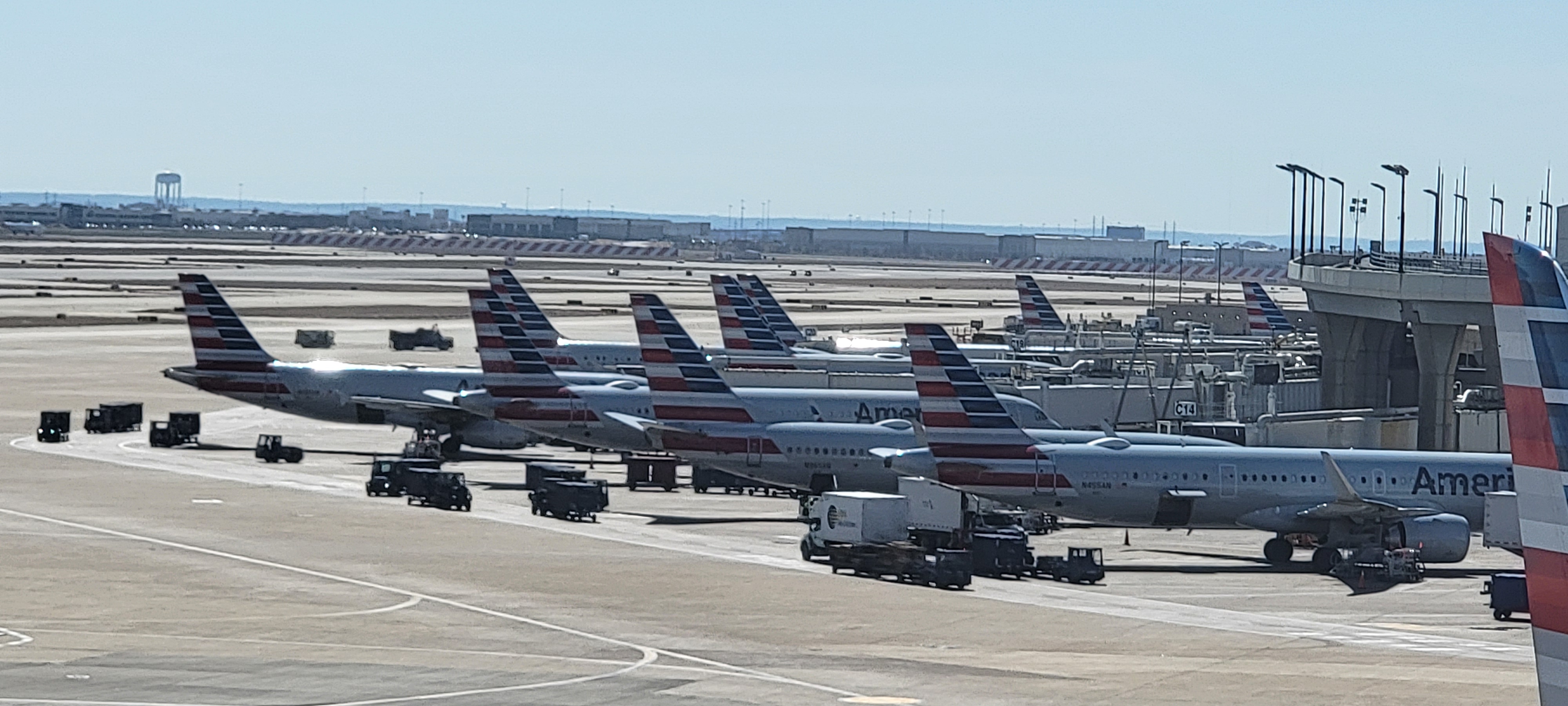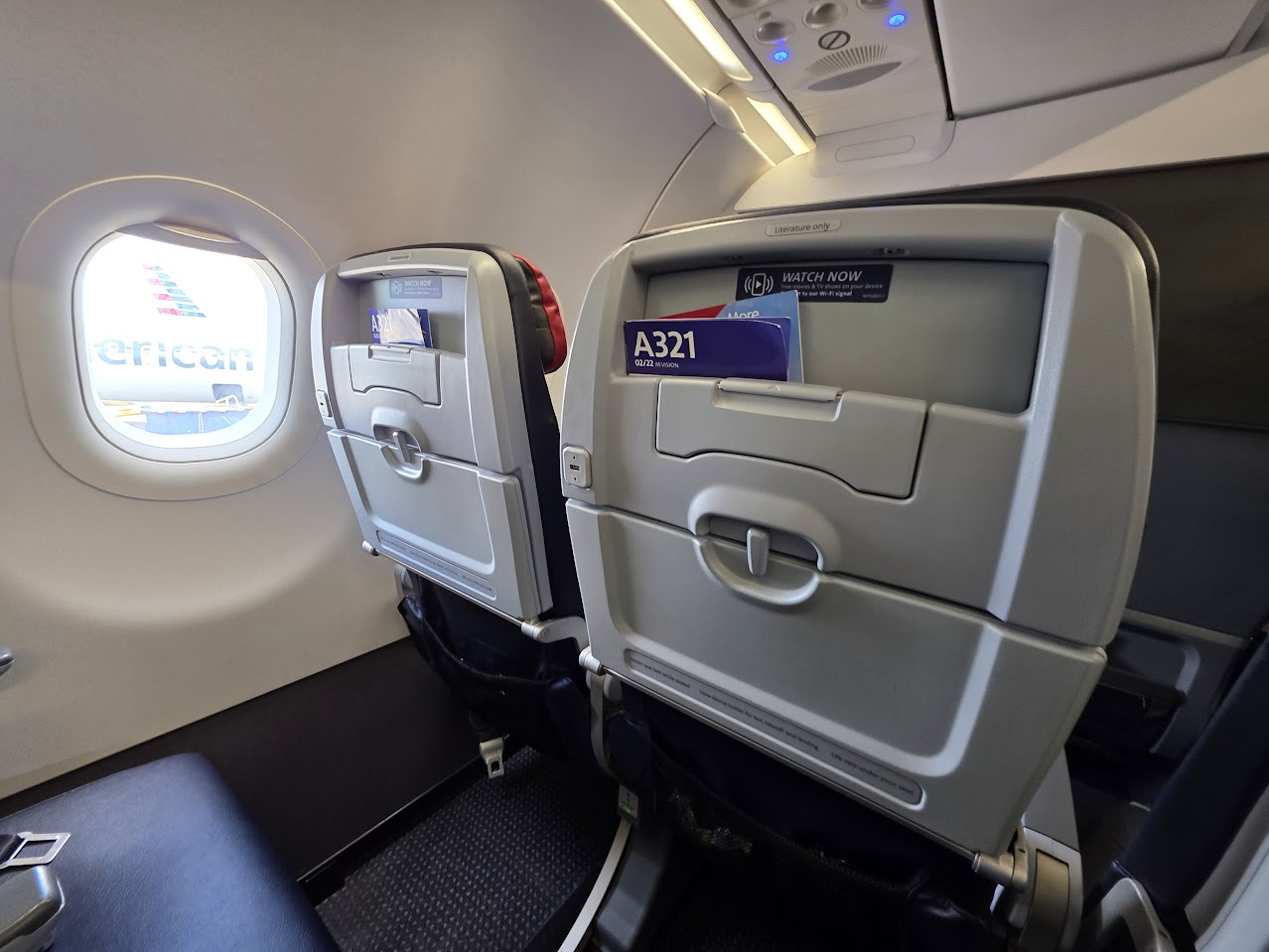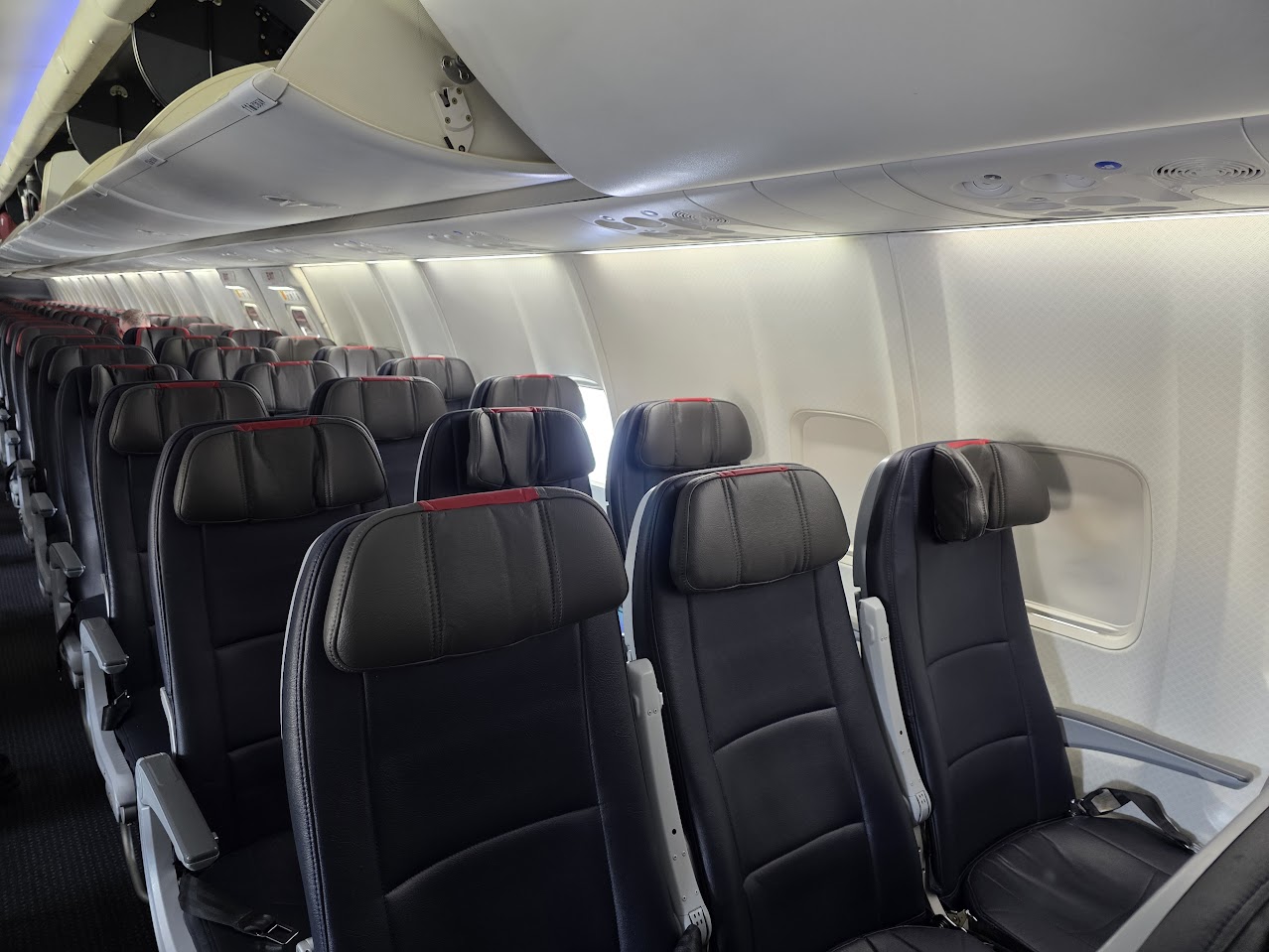Airlines will generally cover your hotel costs when you’re stuck somewhere overnight and it’s their fault – if your plane goes mechanical, or they didn’t have crew avaialable are two usual reasons for this.
- They make no promises about the quality of the room you’ll get. It’s often quite bad! That’s why I recommend paying attention to which credit card you use to purchase your tickets, as your card may offer trip delay coverage that can pay out usually up to $500 for lodging, meals, and transportation back and forth to the airport.
- And they’re not going to cover your costs when the reason for the long delay or cancellation is outside of their control, such as air traffic control problems or bad weather. And they’ll call anything they possibly can weather, even when it’s clear skies where you’re at, where you’re going, and enroute between the two cities. If there was weather where your crew or plane were coming from, that’s weather and they consider themselves off the hook.

So when Alyssa Gallagher found herself stranded by American Airlines – and the airline blamed weather – she should have been on her own. She could have slept in the terminal, or come out of pocket for a hotel room. However American itself told her she’d be “eligible for hotel accommodations.”
Since the airline didn’t provide it to her themselves, she got a room and paid the bill. And she’s been asking them to reimburse her. After all, they told her she was entitled to this cost because her flight was cancelled!
@AmericanAir Your rep told me I was eligible for hotel accommodations after a weather cancellation. I followed that guidance, booked a hotel & rental car and now Im being denied reimbursement.
I’ve been through 3 case numbers. Please help.
Ref#1-38021079370
Screenshot attached pic.twitter.com/CTTcv7QVz0— Alyssa Gallagher (@AlyssGallagher) July 13, 2025
It seems to me that:
- the average customer doesn’t understand when an airline is responsible for their hotel, and when they’re not.
- and they rely on the airline to tell them this.
- the airline should stand behind what their agents put in writing – the customer should be entitled to rely on this.

When a Delta agent mistakenly told a woman she’d receive reimbursement for a rental car after a flight diversion for weather enroute to see her dying father for the last time, the airline stood behind the agent’s claim (after I stepped in, they first denied the claim).
I was told unequivocally, “Delta does not want our customers to experience being told one thing and then find out later it’s not true in any circumstance.”
American has apparently been standing on its policy of not reimbursing customer hotel nights, especially during events outside of their control, notwithstanding the promises that were clearly made. And while they’d normally be correct in their appraisal, the customer relied in good faith on the airline’s representations.

I reached out to American Airlines to see whether they’d stand behind their agent’s representations and did not receive a response. The customer’s only real recourse here is likely (1) a DOT consumer complaint which should at least escalate things to someone at American who can do more than cut-and-paste rejections, or (2) small claims court.


It would be nice if airlines, as an option, offered a flight credit equivalent to the average hotel room rate in the area. Then you can choose where to stay. Be it a hotel or camping out at the terminal.
This shouldn’t be hard to resolve. During a recent delay, American covered hotel for me but because I did this over the phone I didn’t get my ride to the hotel covered. In the morning I found out that others had been given a voucher, so I used my Elliott Advocacy experience for myself, I sent the Uber receipts to American, whereupon I received payment within a few days.
You know what would be swell: Actual passenger rights legislation in the United States, akin to EU/UK 261 or Canada’s APPR, where we get paid a reasonable amount (couple hundred bucks) for significant delays and cancellations under the control of the airline. That way, we could book whatever hotel we wish (@Randy), and simply be compensated for the inconvenience they caused. We pay good money for specific flights, dates, times, class of service, etc.
To address the common objections: No, private travel insurance isn’t good enough (they often limit coverage to delays over 72 hours or affecting more than 50% of your Trip). And, European and Canadian airlines, even ULCC, have proven that such regulations do not bankrupt these companies or lead to increased airfares (Ryanair frequently offers Є20 fares and is still under UK/EU261. C’mon, folks, this is common sense. Congress needs to act. Should be bi-partisan.
@Erect — What an absurd and unnecessary comment. All sizes are welcome.
Airlines lie about weather all of the time. I would like to see some evidence that there was actual weather that was causing multiple delays and cancellations.
Good story, good comments (especially like @Randy’s idea on the credit). As for the specifics on this case, I’m not so sure the CSR’s generic comment is an air-tight proof that Alyssa’s claim would be approved. For sure it was incorrect, but more importantly it fell far short of a promise that AA would reimburse Alyssa in this case.
The customer has no legal recourse. The representative she spoke with wasn’t authorized, per policy, to offer to pay for a room. Just chalk it up to experience and move along.
@AC: You wrote, “The representative she spoke with wasn’t authorized, per policy, to offer to pay for a room. Just chalk it up to experience and move along.”
I disagree. The American Airlines representative acting as an agent wrote that the passenger’s room was covered as partial compensation for their canceled flight. Accordingly, this makes the airline liable to the passenger.
I’m with @Ken A on this one. If a representative of a company says they are going to do something, it is irrelevant to the customer if they were authorized to say this or not. The representative placed liability onto the company to do what they said they would do.
I worked (briefly!) as a CSR (Customer Service Rep) at the local cable company, and we were told to not promise ANYTHING beyond the “you have been scheduled for this time” (for repairs and installs) and the up to $10 credit we were authorized to provide (some people should have gotten more than $10, they were transferred to a supervisor who was authorized to do so.). We weren’t authorized for anything more, but the cable company considered themselves on the hook if someone promised more anyway.
AA should consider the PR backlash here — is it worth the cost of a hotel room to let the public know they can say one thing and do another? Honestly this alone is enough to make me think “maybe I’ll find a flight on Delta” rather than fly AA.
There is a real problem with ‘weather’ being the excuse for everything. If not that, it’s FAA/ATC. Ok, sometimes it is, but why are airlines not planning better, because it feels like passengers ‘pay the price’ every time. Like, if there’s gonna be an issue, set expectations, cancel in-advance, not ‘show up,’ and ‘rolling days’ hour-by-hour. The status quo makes even the most sane, calm, rational seasoned travelers go mad.
@jns — Under our current system, they hardly even need to use the excuse of weather, because these companies can back out of any responsibility regardless. Once again, this is why we need better consumer protection laws.
@Ken A — While I agree that there *should* be recourse, this is not a typical contractual relationship between parties, and recourse is limited, under our current system (sadly, @AC is correct, though I am concerned that he ‘likes’ it this way, you know, like watching the little guy get screwed by the big company). One more time, there should be legislative fixes in place in the USA, so that we passengers get a baseline of (financial) support from airlines when it is their fault.
Problem is she suffered no actual harm. A flight was cancelled due to weather, no compensation is deserved, despite an agent mistakenly saying to the contrary. Otherwise we’d have people booking flights when bad weather is moving in, hoping for a cancellation. But the flight was cancelled, a d she would have had to pay for a hotel anyway. There are no damages.
Does she have the permission in writing? If so, then AA should pay up, and then address the internal problem. However, AA should not be expected to just pay out based on being told that someone from AA said so? Without at least a full name to identify the supposed AA employee, there is no proof that this ever occurred.
Yep, she should be compensated and there should be better consumer protection safeguards. Gary to the rescue again?? Let’s hope for a good resolution!
@Ron — I’m hoping AA has logs of every virtual conversation that occurs, shouldn’t be much work on their part to pull it up (if they’re willing)
Shoutout to those who’ve seen what @Erect et al has been saying today yoiks
First, you can never hold businesses responsible for things said by those unauthorized to make commitments. Could you imagine such a world? Any disgruntled employee could commit their (soon to be ex) employer to anything. “I’m sorry your bag was delayed, we’ll give you $50,000.” Second, there is inherently a problem with verbal commitments. People lie. Nobody at XXAir told me they’d pay for a room, but I’ll claim they did. Finally, legit they said/they said situations occur. Agent says, “we will pay for your room only when it is a situation under our control,” and the pax hears, “we will pay for your room.”
@L737 — I’ll ‘up’ your ‘yoiks’ with a ‘garsh’ and a ‘huhyuck’ (Goofy).
As far as airlines/ATC and weather, the rules they have written into their Contract of Carriage (CoC) make it very easy to blame delays and cancels on those causes. Just try to read the CoC on their websites sometime. I worked in the industry for over 20 years and even I couldn’t understand some of the the legalese.
I just do what Gary suggested and use the same CC and find my own room.Travel insurance is a good idea, especially for international trips.
@greggb57 — If you actually read the fine print on a lot of those travel insurance policies, they specifically try to get out of reimbursement for new flights, loss of prepaid hotels at your destination, tours, cruises, etc., (all of which can be hundreds or thousands of dollars of losses) unless your delay is significant, like “over 72 hours” or “more than 50% of your Trip” depending on the terms (which is useless for most delays which often cost you a day/night or two at your destination). It’s a racket. Think I’m kidding, look at your policies, folks. I’ve learned my lesson a few times. A few providers do not scam their policyholders, but they are far and few between.
Know your rights. mainlines are predatory by nature. Escalate to small claims if possible. It’s very unlikely that the airline would show in court on a small claims action. Getting a judge n is the first step. Harass the shot pit of the airline. Use the law to get what you deserve.
@Jim — Yeah, buddy! The law is weapon! Use it, or it’ll be used against you! All easier said than done, but I have to admire your passion.
Don’t shoot me, I’m just the piano player: ‘you are ELIGIBLE for …’ doesn’t mean you’re entitled to it. Here’s examples of Texas law: A status of “eligible” means you are allowed to drive IF you have a valid Texas driver license in your possession. An Inmate in the State Pen may be “eligible” to file for Parole. These days, good luck! You are ELIGIBLE to be elected President when you meet the qualifications in the Constitution … that includes being ‘native-born.’ One famous commenter in the 1700’s observed it was to keep out ‘ambitious foreigners!’
American gives vouchers for hotel stays and the agent would know that. The agent would also know that no airline pays for weather related delays.
When I got held up overnight because of an American cancelation not caused by weather, they issued a voucher over the phone. Had I waited in a long line, the gate agent would have done the same.
It looks like the agent left out the word “not’ by mistake, having read the screenshot. Customers are bound by the conditions of carriage. If it says anywhere on American’s web site that they don’t offer compensation for weather related delays, then I don’t think a typo makes them liable
@Hall Decker — On ‘native born,’ sadly for him, Sen. Ted Cruz was born in Canada.. boo hoo…
How many real lawyers here? The agent has apparent authority and put it in writing. She relied on the representation — promissory estoppal.
@Jack the Ladd — *estoppel
Paging @Retired Lawyer…
Hopefully he would agree, the law is a human construct; it isn’t naturally or automatically occurring, like gravity, so you must actually enforce it, and often, even when you try, there are frequent exceptions, and also there is the relative subjectivity of judges, juries, and the parties.
So, again, while I admire the ‘passion’ for advocacy that folks such as yourself and @Jim exhibit above, referencing black-and-white concepts of law as it may apply to the hypothetical here, I still think it’s far easier said than done.
Like, feel free to ‘take your shot’ when in these situations. Write your demand letters. Seek qualified counsel. But, often, we’re out of luck over these small claims, unless we do literally ‘go to court,’ and by that time, we’ve spent weeks and months, a lot of effort, and resources than the original claim was even worth.
Yes, these companies rely on us ‘little guys’ giving up easily; so, one more time, I applaud anyone willing to ‘try’ (even if they ultimately fail), because, after all, it’s the ‘journey’ not the destination, sometimes. So, fight the good fight! You might just win…
I like what Ann Richards said about her ex-husband, “Yeah, well, he IS a lawyer … but he’s not a very good one!” I retired in ’18 after close to 50 years. In Texas competent lawyers whose practice isn’t limited to traffic tickets are billing well over $250 an hour. Some over $1,000. And, when you need serious help, they’re a bargain. A phrase made popular by Charles Dickens: The law is an ass is a derisive expression said when the the rigid application of the letter of the law is seen to be contrary to common sense.
@Hall Decker — Ah, yes, Mr. Bumble. Nice ‘Oliver Twist’ reference!